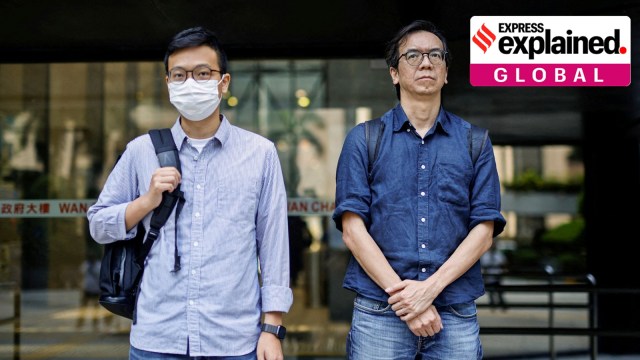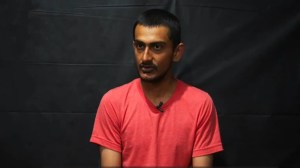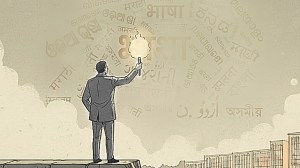A Hong Kong court sentenced two editors of a now-defunct news publication on charges of sedition and for participating in the 2019 protests that rocked the city.
The verdict has been viewed as a sign of a changing political atmosphere in Hong Kong, specifically the declining freedom of expression following the authorities’ clampdown on the protests. China, which calls Hong Kong its Special Administrative Region (SAR), has since sought to extend its control through several policies.

What was the case and what has happened in Hong Kong since? We explain.
What was Stand News?
Stand News was a media organisation founded in 2014, in the wake of the “Umbrella Movement”. The student-led protests were against China’s attempt to change the system of voting in Hong Kong’s elections, making it more restrictive. Authorities said they would first screen the candidates who could contest in the polls.
In a short period, Stand News became well-known for its reporting. It was also part of the 2015 global investigative journalism project ‘Pandora Papers’, which included the BBC, The Guardian, The Washington Post and The Indian Express.
Stand News came under the radar of Hong Kong authorities, particularly after it covered the 2019 protests.
What were the 2019 Hong Kong protests?
Hong Kong became China’s SAR following the end of British control in 1997. For 50 years from that point, Hong Kong was to have a special governance setup while being under Chinese control — “One country, two systems”.
Story continues below this ad
This would include greater autonomy in matters of economy (given its established position as a centre of global commerce), freedom of expression, independence of the judiciary, and so on. Domains such as foreign affairs and defence would come under Chinese jurisdiction.
However, China’s attempts to change certain electoral processes have elicited backlash from Hong Kong residents. The Umbrella Movement, where students used umbrellas to shield themselves from police tear gas, was followed by another major wave of protests in 2019.
The later protests were against a proposed extradition Bill, which would let authorities in mainland China extradite people from places like Hong Kong for trial. Tens of thousands of people, mostly young adults, took to the streets.
Authorities eventually cracked down, and the outbreak of the Covid-19 pandemic further led to restrictions on public gatherings, effectively ending the agitation.
Story continues below this ad
How China responded to Hong Kong protests
In 2020, China imposed a national security law on Hong Kong which led to further restrictions on speech and criminalised dissent against the government. Two years later, a pro-Beijing leader named John Lee was appointed as the Chief Executive — the seniormost official in the city’s government.
Notably, Hong Kong’s judges are appointed by the Chief Executive on the recommendation of an independent commission.
Authorities have also acted against media organisations and protestors. In 2021, the newspaper Apple Daily was shuttered, a year after its founder was arrested under the national security law. The same year, Stand News offices were raided as well.
In the recent case of Stand News journalists, editor-in-chief Chung Pui-kuen was sentenced to 21 months in prison, while former acting editor-in-chief Patrick Lam’s sentence was waived off given his ill health. The time Chung already served in detention means he will serve 10 months in prison now.
Story continues below this ad
The case was specifically about Stand News publishing “seditious” opinion articles. According to the Associated Press, their lawyer Audrey Eu argued that “their case was different because they were journalists whose duties were to report different people’s views.”
However, Judge Kwok Wai-kin dismissed the argument and accused them of siding with the protesters. He said the defendants “were not engaged in genuine media work but were instead participating in the so-called resistance of that time.”
Following the sentencing, the Hong Kong Journalists Association said, “There is nothing wrong with safeguarding national security, but allowing journalists to speak out and enabling society to speak freely is necessary to maintain Hong Kong’s prosperity and stability.”
(With AP inputs)








































